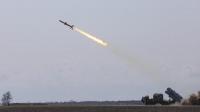US-Iran feud casts new investment shadow over Middle East

FDI levels have already fallen throughout Iran's main sphere of influence in the region.
The ongoing confrontation between Iran and the US has spread new risks throughout the Middle East, with tensions now expected to remain high throughout 2020.
“There is reason for investors in the region to take the situation seriously,” Torbjorn Sotvedt, Middle East analyst at risk consultancy Verisk Maplecroft, says. “The high-profile attack against general Qasem Soleimani lowers the threshold for Iran to engage in disruptive activity across the region. Risks of oil disruptions is high.”
Iranian missiles hit two military bases housing US forces in Iraq in the early morning of January 8 in retaliation for the killing of General Soleimani a few days earlier, as confirmed by the Islamic Revolutionary Guard Corps (IRGC) through state news agency Irna. The IRGC also warned that “US allies that are providing bases to America's terrorist army […] will be targeted”, causing speculation in the Western press that Dubai and Israel may be Tehran’s next targets.
Iran has already been almost completely off limits for Western investors following the US’s withdrawal from the nuclear deal struck in 2015. The countries in the region where Teheran has grown its influence as part of an escalating power play with Saudi Arabia have also taken a hit. Once hailed as a great reconstruction opportunity, Iraq has seen US and European investment dry up in the past three years, as shown by figures from foreign investment monitor fDi Markets. Bahrain, Lebanon, and Syria have experienced historic weak levels of Western FDI since 2017 too, fDi Markets figures show.
Despite more consistent FDI inflows, geopolitical tensions have not spared Saudi Arabia, Iran’s nemesis in the region. In the landmark initial public offering (IPO) of state oil company Saudi Aramco in late 2019, foreign investors “seemed to price in governance and geopolitical tensions, as well as the country’s vulnerability to further attacks on Aramco’s oil facilities [after the attacks on two of the companies’ refineries by Iranian-backed Yemeni rebels in September]”, Mr Sotvedt says. Saudi Aramco’s stocks sank by 10% in early trading on January 8 following Iran’s missile attacks in Iraq.
With both the US and Iran facing key elections in late 2020, the current standoff is expected to stay, as Timothy Ash, senior emerging market strategist at Bluebay Asset Management, wrote in a note on January 8.
“I think US-Iran is going to be the big risk factor still for the year. I don’t think this really goes away. Iran is the kicking boy now for Trump, he has seen a weakness [in Tehran] and he will milk that.”

Global greenfield investment trends
Crossborder investment monitor
|
|
fDi Markets is the only online database tracking crossborder greenfield investment covering all sectors and countries worldwide. It provides real-time monitoring of investment projects, capital investment and job creation with powerful tools to track and profile companies investing overseas.
Corporate location benchmarking tool
fDi Benchmark is the only online tool to benchmark the competitiveness of countries and cities in over 50 sectors. Its comprehensive location data series covers the main cost and quality competitiveness indicators for over 300 locations around the world.
Research report
fDi Intelligence provides customised reports and data research which deliver vital business intelligence to corporations, investment promotion agencies, economic development organisations, consulting firms and research institutions.
Find out more.




